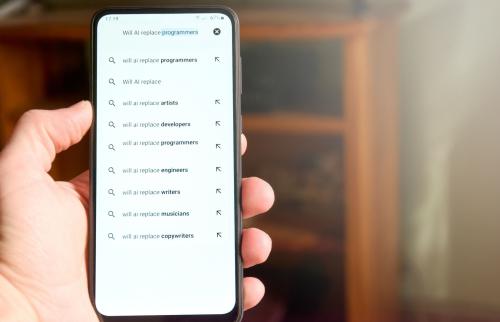The ongoing pandemic tragedy and social justice movements have already transformed the business landscape in virtually all industries in the U.S. Any business powered by digital technologies that either replaces or reduces the need for physical contact operates at a great advantage. As many observers note, the pandemic has accelerated and intensified trends that were already underway before COVID-19 struck. Meanwhile, the highly uneven impact of the pandemic coupled with recent examples of social injustice have highlighted structural and ever-widening income inequality in the U.S. and the need to reduce it.
The commercial banking industry has not escaped the accelerating forces of the pandemic, and like other industries, will be reshaped to some extent.[1] Given the central role the banking industry played in the 2008-09 financial crisis and continues to play in our economy today, what happens to banking remains of high interest to the broad public and to federal and state policymakers.
It is timely and important, therefore, to consider how the confluence of the pandemic, technological innovation, and social issues will shape the future of the banking industry, as well as create policy options for improving the financial lives of those with limited or no access to banking. That is the challenge we take up in this essay.
In brief, we reach the following conclusions. First, traditional banking is alive and well, but threatened on multiple fronts. The banking industry’s main traditional source of income – earning the spread between loan and deposit interest rates – has declined and is likely to remain depressed in a low interest rate environment. Broadly speaking, the banking industry will likely face substantial, pandemic-driven losses over the next few quarters. Traditional banks, with high legacy costs due in part to maintaining brick-and-mortar branch networks and expensive IT systems, also will be under competitive assault from financial technology (fintech) disruptors, both outside and inside the banking system itself.
Second, banks have already responded to these threats and are taking further steps to strengthen their competitive positions. Triggered by the pandemic, the banking industry is poised to accelerate its adoption of new technologies and to reduce costs associated with branch networks on a permanent basis. In the process, the banking industry will be shedding branches and substantial numbers of jobs.[2]
Third, the rise of fintechs in principle should make banking more affordable for the currently unbanked, but fintechs – like traditional banks – have economic, regulatory, and operating realities that will limit their ability to bring about any significant conversions of the unbanked to the banked. Therefore, ambitious public policy efforts will be required to move adults who are currently unbanked into the banking system, a necessary prerequisite for upward economic mobility. We support one such effort here: a “public banking option” with banking services delivered to the unbanked through the postal system, piloted and implemented with technical expertise and back-office support from a consortium of Community Development Financial Institutions (CDFIs) and the Federal Reserve System.
Read the full report here.
Alice Cho serves on the board of directors of First Interstate BancSystem. She has also served as a paid advisor to Varo, an online banking company, and Ribbit Capital, a global investment organization. Previously, she held the position of Managing Director at Promontory Financial Group. Robert Litan is a non-resident Senior Fellow in the Economic Studies program, which he formerly directed, at the Brookings Institution. Litan is a partner at Korein Tillery, which has been and currently is involved in multiple litigations against major U.S. and foreign banks. The authors did not receive financial support from any firm or person for this article. Other than the aforementioned, the authors did not receive financial support from any firm or person with a financial or political interest in this article. Other than the aforementioned, they are currently not an officer, director, or board member of any organization with an interest in this article. The views expressed in this article are solely those of the authors.
The Brookings Institution is committed to quality, independence, and impact.
We are supported by a diverse array of funders. In line with our values and policies, each Brookings publication represents the sole views of its author(s).








